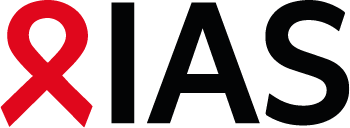Share Abstract
HIV-free survival at six weeks in a cohort of children born to HIV-positive mothers enrolled in Option B+ in Kigali: the Kabeho study
Abstract Content:
Background: In
April 2012, Rwanda began implementing a policy to initiate all HIV-positive
pregnant women on lifelong antiretroviral treatment (''Option B+''). In April
2013, the Elizabeth Glaser Pediatric AIDS Foundation (EGPAF) and Rwanda''s Ministry
of Health began the Kigali Antiretroviral and Breastfeeding Assessment for the
Elimination of HIV (Kabeho) Study. The study aims to assess HIV-free survival from
birth to 24 months weeks of age among HIV-exposed children with mothers
enrolled in Option B+.
Methods: HIV-positive women were enrolled from their third trimester of pregnancy until two weeks postpartum at 14 Kigali health facilities that serve > 50 HIV-positive pregnant women/year. At enrollment, HIV and ART history, medical care, and laboratory information were collected. Delivery information and birth outcomes were recorded from maternity units as soon as possible after delivery. At 6 weeks of age, PCR for HIV diagnosis was done by the National Reference Laboratory using Roche COBAS Ampliprep/TaqMan HIV-1 qualitative test. Positive results were confirmed on second specimen.
Results: Of the 608 infants born in the cohort, 9 (1.4 %) were still births, 10 (1.6 %) spontaneous preterm deliveries and 7 (1.2 %) infants had birth defects. Of the 572 infants with known birth weight, 33 (5.8 %) had birth weight below 2,500 grams. By six weeks of age, 11 (1.8 %) additional infant deaths occurred and 7 (1.2%) of them died within the first 24 hours of life. Of the 588 children alive at six weeks, 2 (0.3%) were confirmed to be HIV-positive. The overall HIV-free survival at 6 weeks was estimated at 96.8% (95% CI: 95%-98%).
Conclusions: Provision of ART to all Kabeho Study women resulted in low mother-to-child HIV transmission (0.3%) before six weeks of age, and mortality in this HIV-exposed cohort is much lower than the 2.7% neonatal mortality rate in the 2010 Rwanda Demographic and Health Survey (DHS).
Methods: HIV-positive women were enrolled from their third trimester of pregnancy until two weeks postpartum at 14 Kigali health facilities that serve > 50 HIV-positive pregnant women/year. At enrollment, HIV and ART history, medical care, and laboratory information were collected. Delivery information and birth outcomes were recorded from maternity units as soon as possible after delivery. At 6 weeks of age, PCR for HIV diagnosis was done by the National Reference Laboratory using Roche COBAS Ampliprep/TaqMan HIV-1 qualitative test. Positive results were confirmed on second specimen.
Results: Of the 608 infants born in the cohort, 9 (1.4 %) were still births, 10 (1.6 %) spontaneous preterm deliveries and 7 (1.2 %) infants had birth defects. Of the 572 infants with known birth weight, 33 (5.8 %) had birth weight below 2,500 grams. By six weeks of age, 11 (1.8 %) additional infant deaths occurred and 7 (1.2%) of them died within the first 24 hours of life. Of the 588 children alive at six weeks, 2 (0.3%) were confirmed to be HIV-positive. The overall HIV-free survival at 6 weeks was estimated at 96.8% (95% CI: 95%-98%).
Conclusions: Provision of ART to all Kabeho Study women resulted in low mother-to-child HIV transmission (0.3%) before six weeks of age, and mortality in this HIV-exposed cohort is much lower than the 2.7% neonatal mortality rate in the 2010 Rwanda Demographic and Health Survey (DHS).
